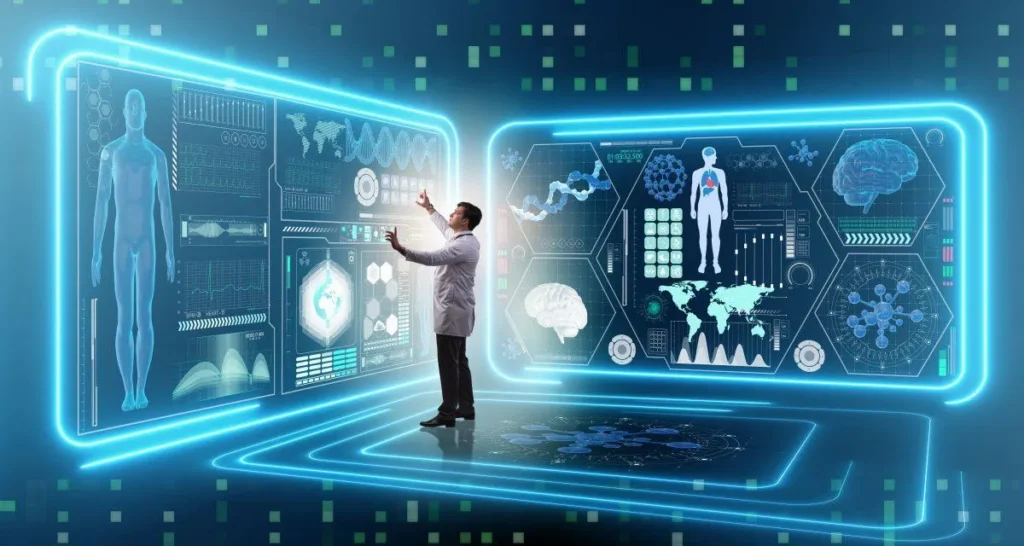
Artificial intelligence (AI) and machine learning (ML) are poised to revolutionize the healthcare industry, ushering in a new era of personalized medicine, predictive analytics, and enhanced diagnostic capabilities. In this blog post, we’ll delve into the latest advancements in AI and ML within the healthcare sector, exploring their transformative impact on patient care and diagnostics.
1. Predictive Analytics:
AI-powered predictive analytics algorithms are revolutionizing healthcare by analyzing vast amounts of patient data to forecast disease progression, identify at-risk populations, and optimize treatment plans. These algorithms leverage machine learning techniques to detect subtle patterns and correlations within patient data, enabling healthcare providers to intervene proactively and deliver personalized care tailored to individual patient needs. From predicting readmission rates and identifying sepsis onset to forecasting patient outcomes and optimizing resource allocation, predictive analytics powered by AI are enhancing clinical decision-making and improving patient outcomes across the healthcare continuum.
2. Personalized Medicine:
AI-driven personalized medicine is transforming the treatment paradigm by leveraging patient-specific data, genetic information, and clinical insights to tailor therapies and interventions to each individual’s unique characteristics and needs. Machine learning algorithms analyze genomic data, biomarkers, and patient histories to identify optimal treatment strategies, predict drug responses, and mitigate adverse effects. From cancer immunotherapy and pharmacogenomics to precision oncology and rare disease diagnosis, personalized medicine powered by AI holds the promise of revolutionizing healthcare delivery, improving treatment efficacy, and minimizing patient risk.
3. Medical Imaging:
AI-powered medical imaging is revolutionizing diagnostic imaging modalities by enhancing accuracy, efficiency, and clinical workflow. Deep learning algorithms trained on large datasets of medical images can detect subtle anomalies, classify pathologies, and assist radiologists in interpretation and diagnosis. From detecting early-stage cancers and identifying neurological disorders to quantifying disease progression and guiding surgical interventions, AI-enabled medical imaging solutions are augmenting clinical decision-making, reducing diagnostic errors, and improving patient outcomes.
Conclusion:
The future of AI in healthcare holds immense promise for transforming patient care and diagnostics across the healthcare continuum. From predictive analytics and personalized medicine to medical imaging and beyond, AI and ML technologies are revolutionizing how healthcare is delivered, enabling more accurate diagnoses, tailored treatments, and proactive interventions. As these technologies continue to advance and mature, we can expect to see continued innovation, collaboration, and adoption across the healthcare ecosystem, ultimately leading to improved outcomes, enhanced patient experiences, and a more sustainable healthcare system.
By embracing the potential of AI in healthcare and leveraging these transformative technologies to their fullest extent, we can unlock new opportunities for innovation, discovery, and improvement in patient care and diagnostics.



